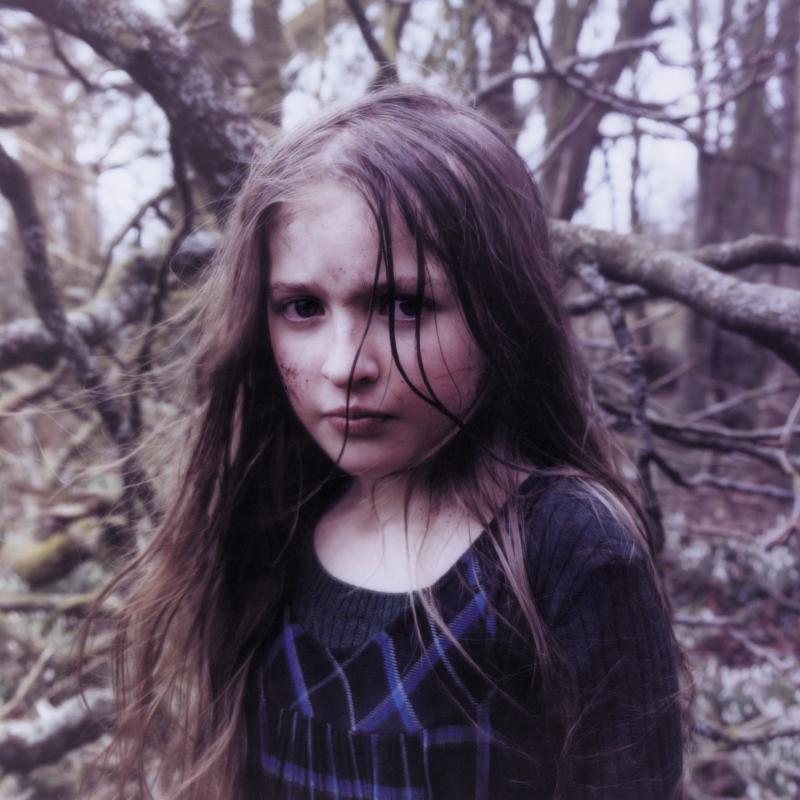BABES NEVER DIE; a powerful mantra if ever there was one. Honeyblood are back and they want everyone to know about it. On their second album, the Glasgow duo sound more thrilling and menacing than ever; armed with shedloads of defiance, grit and resolve, and ready to stake their claim as Scottish music’s next big success story.
It doesn’t seem long ago that the band first burst onto the scene with their lo-fi scuzzy pop-rock aesthetic but so much has happened since then; those humble DIY beginnings and makeshift bathroom recording sessions very much a thing of the past. Their 2014 self-titled debut was remarkably assured and accomplished for a first LP; a sugar rush of grungy pop tunes flecked with fuzzy nineties nostalgia, full of catchy hooks and fuelled by a raw punk energy. Their second album ‘Babes Never Die’ refines this sound and takes it to a whole new level. The same formula may be there but the songwriting is sharper, the hooks are punchier and it exudes a truly empowering energy that lends it greater weight and urgency than its predecessor.
This of course can be partly credited to the arrival of Cat Myers on drums to replace Shona McVicar, who left the band shortly after the release of their debut. Drafted in as a quick replacement, her presence behind the kit swiftly gave Honeyblood’s live shows a harder and faster energy and this newfound ferocity has been captured well on the album. Her success is a clear sign of the band’s ability to bounce back in adverse circumstances; a theme that is so prevalent throughout ‘Babes Never Die’. You quickly realise that Stina Tweeddale is no longer doing all of the heavy lifting; Myers’ blown-out drums adding more bite and beefing up Tweeddale’s crunching guitar lines and defiant vocal delivery.
It’s only appropriate therefore that the introductory track immediately indicates this shift in the band’s sound; 40 seconds of witchy incantations being powerfully dominated by Myers’ thunderous percussion before the chords of the title track ring out. The familiar trio of ‘Babes Never Die’, ‘Ready for the Magic’ and ‘Sea Hearts’ form a triple whammy of an opener; each track bursting with relentlessly infectious hooks and a thrilling punk energy.
The title track and ‘Sea Hearts’ form triumphant rallying cries, embodying the themes of grit and resolve that run throughout the album while boasting their signature fuzzed up guitars and earworm melodies. The former is less cutting but no less effective while the latter grabs you by the hand and takes you on a raucous tale of invincible friendship, urging you to throw caution to the wind. Tweeddale’s bold delivery is backed by gang-like chanting as the track exudes a fierce attitude that turns heartbreak on its head (“we’ll break hearts that get in our way”).
Sitting in the middle of these two is their gem of a lead single ‘Ready for the Magic’; the most aggressive and menacing offering from the band so far. Its jagged riffage and muscular percussion come together in loud and riotous fashion on a huge chorus as a near feral energy fuels its fizzing rhythms and compelling hooks. The track is a clear example of how far the band have come since their debut. The three songs provide a solid opening that sets a precedent for the rest of the album; but it’s one they don’t shy away from. Following this three-speared attack, the smouldering cautionary tale of ‘Love Is A Disease’ is as catchy as anything else they’ve produced.
Along with their heavier sound, Stina Tweeddale’s songwriting has become more self-assured, hook-laden, snappy and direct while also possessing the ability to effortlessly switch her delivery between feelings of defiance, menace and triumph. Instead of the broader sentiments expressed in Honeyblood such as ‘(I’d Rather Be) Anywhere But Here’, she digs deeper for inspiration. ‘Gangs’ for example has a similar message but conveys it by detailing the social inequalities she experienced while attending school (“don’t let your fear keep you here”) while fuzzy ballad ‘Cruel’ is perhaps the most fragile and honest delivery from her so far over a plucked guitar line which gains momentum with stomping percussion.
Elsewhere, she pulls no punches in her depiction of a souring relationship in ‘Justine, Misery Queen’; becoming more consistently direct in her hits. It’s a perfect example of the band’s ability to deliver a less than conciliatory narrative over a perky, jagged pop melody. Similarly ‘Hey, Stellar’ is bittersweet in its reflections about a ‘betraying bitch’ (“do you wish you hadn’t been such a bitch, or do you try hard not to think about it?”).
Honeyblood have returned with an album that screams of resilience and defiance in ways that is more than befitting of its title. Above all else, it’s a call to arms for anyone in need of solidarity; a testament of survival which captures the sounds of a band who are ready to take on anything.











